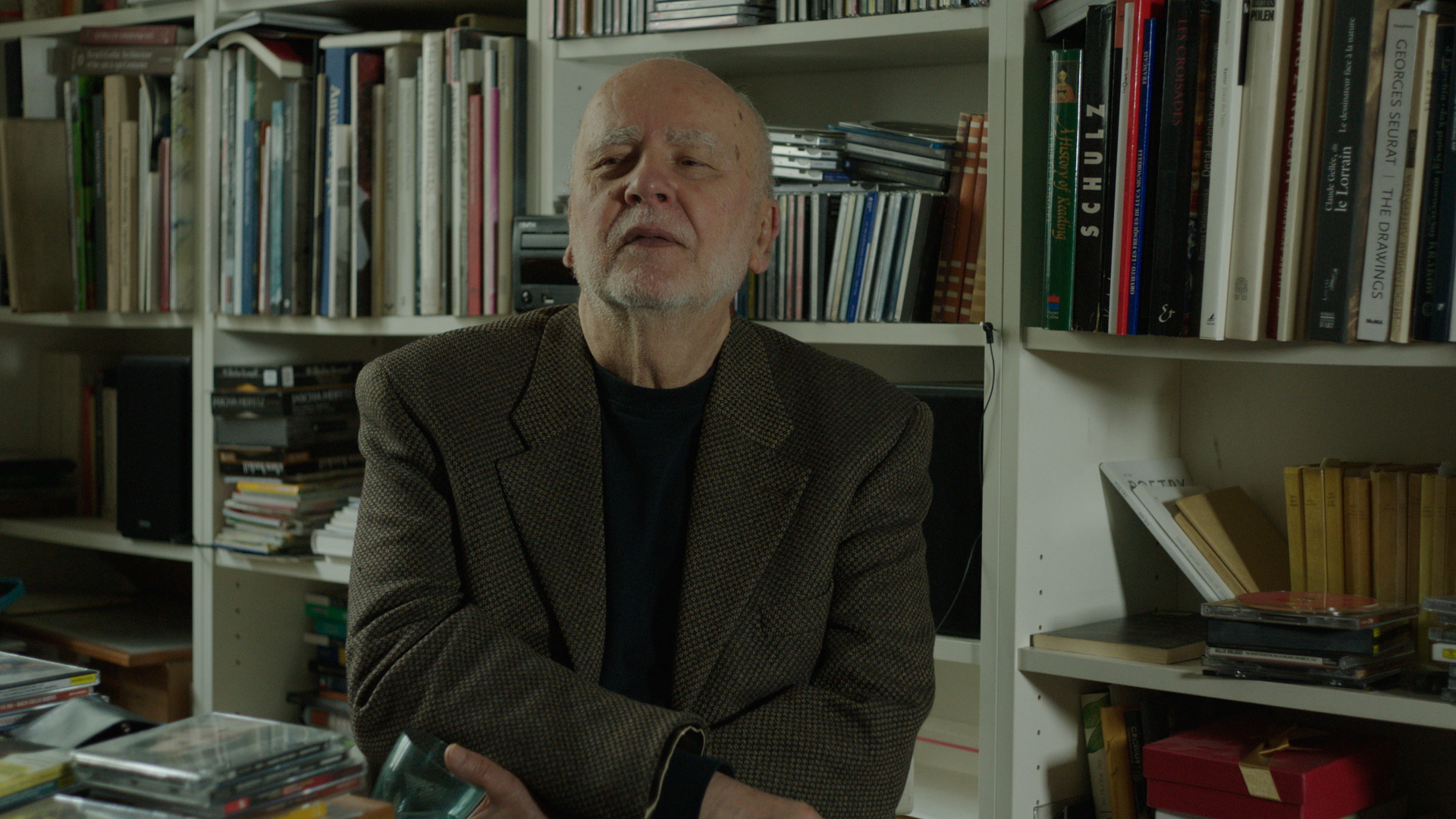NEXT STORY

Poetry readings: Self-portrait
RELATED STORIES

NEXT STORY

Poetry readings: Self-portrait
RELATED STORIES


|
Views | Duration | |
|---|---|---|---|
| 41. 'Praise' versus 'extoll' | 45 | 04:15 | |
| 42. Try to Praise a Mutilated World – the history of... | 46 | 03:25 | |
| 43. My return to Kraków | 59 | 04:23 | |
| 44. Why I like Kraków | 63 | 01:01 | |
| 45. Poetry readings: Truth | 44 | 01:11 | |
| 46. Poetry readings: Electric Elegy | 26 | 03:10 | |
| 47. Poetry readings: Self-portrait | 23 | 03:24 | |
| 48. Poetry readings: Try to Praise a Mutilated World | 26 | 01:46 | |
| 49. Inspiring masters I have known | 58 | 03:41 | |
| 50. Inspiring masters that I never met | 52 | 05:03 |

Here is the German radio, but that's because – I mentioned that already – everything was formerly German, the items from my childhood were German.
Electric Elegy
Translation of this poem not available.
Tu jest niemieckie radio, ale to dlatego – to już mówiłem nawet – wszystko było poniemieckie wtedy, w moim dzieciństwie – przedmioty były niemieckie.
Elektryczna elegia
Żegnam cię, niemieckie radio o zielonym oku,
ciężka skrzynko, składająca się – nieomal –
z ciała i duszy (twoje lampy żarzyły się
różowym, łososiowym światłem, jak głębokie ja
u Bergsona).
Przez grubą tkaninę, pokrywającą
głośnik (moje ucho lgnęło do ciebie jak do
kratek konfesjonału) szeptał niegdyś Mussolini,
krzyczał Hitler, tłumaczył coś spokojnie Stalin,
syczał Bierut, bez końca przemawiał Gomułka.
Ale tobie nikt nie zarzuci zdrady, radio,
nie, jedynym twoim grzechem było absolutne
posłuszeństwo, czuła wierność kilohercom:
kto przychodził, był wysłuchany, kto nadawał –
odebrany.
Przecież wiem, że dopiero
pieśni Schuberta przyprawiały cię
o najwyższą, szmaragdową błogość.
Walce Chopina sprawiały, że twoje elektryczne
serce biło delikatnie i mocno i materia
osłaniająca głośnik unosiła się, jak piersi
zakochanych dziewcząt w dawnych powieściach.
Co innego wiadomości – zwłaszcza gdy
emitowała je Wolna Europa albo BBC;
twoje oko stawało się niespokojne, zielona
źrenica rozszerzała się i kurczyła, jakby
pod wpływem zmiennych dawek atropiny.
Mieszkały w tobie szalone mewy, Makbet.
Nocami zbierały się w twoich pokojach
zagubione sygnały. Żeglarze prosili o pomoc,
płakała młoda kometa, która straciła głowę.
Towarzyszyłem twojej starości – oznajmił ją
ochrypły głos, urywane zdania, potem trzaski (kaszel),
wreszcie ślepota (morskie oko zgasło)
i głucha, głucha cisza. Śpij spokojnie,
poniemieckie radio, śnij o Schumannie
i nie zbudź się, gdy zapieje następny kogut dyktator.
Adam Zagajewski (1945-2021) was a Polish poet, novelist, translator and essayist. He was awarded the 2004 Neustadt International Prize for Literature, the 2016 Griffin Poetry Prize Lifetime Recognition Award and the 2017 Princess of Asturias Award for Literature. He is considered as one of the leading poets of the Generation of '68 or the Polish New Wave (Polish: Nowa fala) and is one of Poland's most prominent contemporary poets.
Title: Poetry readings: "Electric Elegy"
Listeners: Andrzej Wolski
Film director and documentary maker, Andrzej Wolski has made around 40 films since 1982 for French television, the BBC, TVP and other TV networks. He specializes in portraits and in historical films. Films that he has directed or written the screenplay for include Kultura, which he co-directed with Agnieszka Holland, and KOR which presents the history of the Worker’s Defence Committee as told by its members. Andrzej Wolski has received many awards for his work, including the UNESCO Grand Prix at the Festival du Film d’Art.
Tags: Electric Elegy
Duration: 3 minutes, 10 seconds
Date story recorded: March 2018
Date story went live: 25 April 2019